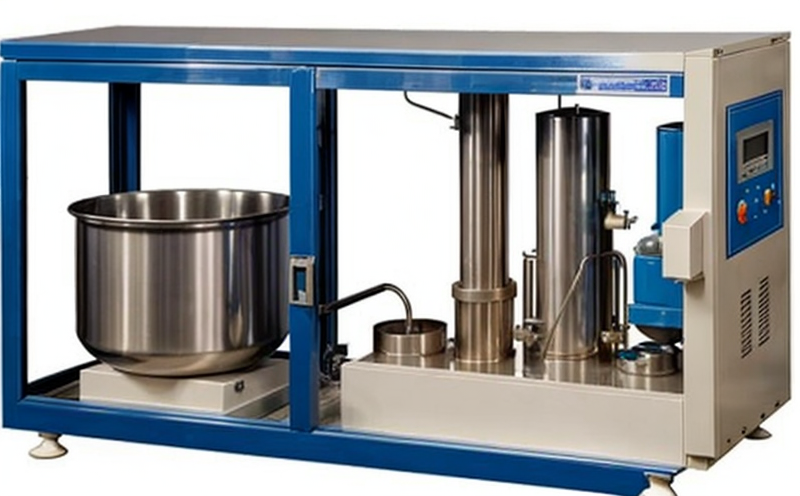EN 18245 Multi-Mycotoxin Profiling in Silage Feed
The European Standard EN 18245 outlines a method to profile multiple mycotoxins in silage feed. This testing is crucial for ensuring food and feed safety, as mycotoxins can pose significant health risks if present in excessive amounts.
Mycoflora contamination of silage feed can lead to the production of harmful secondary metabolites, including various mycotoxins such as zearalenone, deoxynivalenol (DON), and fumonisins. These toxins not only affect animal health but also have implications for human consumption through the food chain.
The process begins with proper sampling of the silage feed to ensure a representative sample is analyzed. The sample must be preserved correctly before analysis, as improper handling can lead to inaccuracies in toxin detection. Once prepared, the sample undergoes extraction followed by clean-up procedures such as solid-phase extraction (SPE) or liquid-liquid partitioning.
The extracted mycotoxins are then identified and quantified using high-performance liquid chromatography-tandem mass spectrometry (HPLC-MS/MS). This method provides precise detection limits for each mycotoxin, ensuring accurate results. The standard specifies the levels of acceptable contamination, which vary based on the type of animal the feed is intended for.
For instance, dairy cows have a lower tolerance to certain mycotoxins compared to beef cattle due to their more sensitive immune systems and higher nutritional demands. This necessitates strict adherence to the standard's guidelines when testing silage feeds destined for these animals.
The results are reported in parts per billion (ppb) or micrograms per kilogram (µg/kg), depending on the unit of measurement used by the client. Reporting should include an overview of all detected mycotoxins, their concentrations, and a compliance assessment against relevant regulations such as EU Directive 2018/848.
Our laboratory follows this standard meticulously to ensure accurate and reliable results that meet regulatory requirements and industry best practices. By adhering strictly to EN 18245, we provide peace of mind for our clients regarding the safety of their silage feed products.
Industry Applications
| Application | Description |
|---|---|
| Dairy Farms | To ensure the safety of milk and dairy products, mycotoxin levels in silage fed to dairy cows must be monitored closely. |
| Poultry Farms | Reduction in feed costs through optimized ration formulation while maintaining animal health and performance. |
| Hog Production | Avoiding mycotoxin-induced reproductive issues, growth retardation, and increased mortality rates. |
| Ruminant Nutritionists | Developing feeds that meet the stringent requirements set by EN 18245 to ensure product safety. |
| Application | Description |
|---|---|
| Animal Feed Manufacturers | Ensuring compliance with international standards and regulations for mycotoxin levels in feed products. |
| Agricultural Consulting Firms | Providing clients with detailed analyses to help them make informed decisions about feed quality. |
| Regulatory Bodies | To enforce compliance with national and international regulations on mycotoxin levels in food and feed products. |
Eurolab Advantages
Eurolab, your partner in quality assurance, offers a comprehensive suite of services to help you meet the stringent requirements set by EN 18245. Our team of experts ensures that every step of the testing process adheres strictly to this standard.
We provide state-of-the-art facilities equipped with the latest technology for accurate and reliable mycotoxin profiling. Our analysts are well-versed in the nuances of EN 18245, ensuring consistent and reproducible results. This expertise allows us to offer quick turnaround times without compromising on accuracy.
Our commitment to quality is reflected not only in our adherence to international standards but also through continuous training for our staff and investment in cutting-edge equipment. We are ISO/IEC 17025:2017 accredited, ensuring that all our processes meet the highest scientific and technical standards.
By choosing Eurolab, you gain access to a team of dedicated professionals who understand your specific needs and can offer tailored solutions for your testing requirements. Our customer service is second-to-none, providing prompt responses to any queries or concerns you may have throughout the process.
Quality and Reliability Assurance
Eurolab places a strong emphasis on quality assurance in all our operations. We are ISO/IEC 17025:2017 accredited, which ensures that our laboratory meets the highest scientific and technical standards required by international organizations.
Our quality management system is designed to meet the needs of clients across various sectors, including food and feed testing. This system encompasses rigorous internal audits, continuous improvement initiatives, and stringent data validation procedures. These measures ensure that every test conducted in our laboratory adheres strictly to the relevant standards and specifications.
We have a comprehensive quality assurance program that includes regular calibration of all instruments, participation in proficiency testing programs, and adherence to strict safety protocols. Our goal is to provide clients with reliable results that they can trust, thereby enhancing their reputation and competitiveness in the market.





